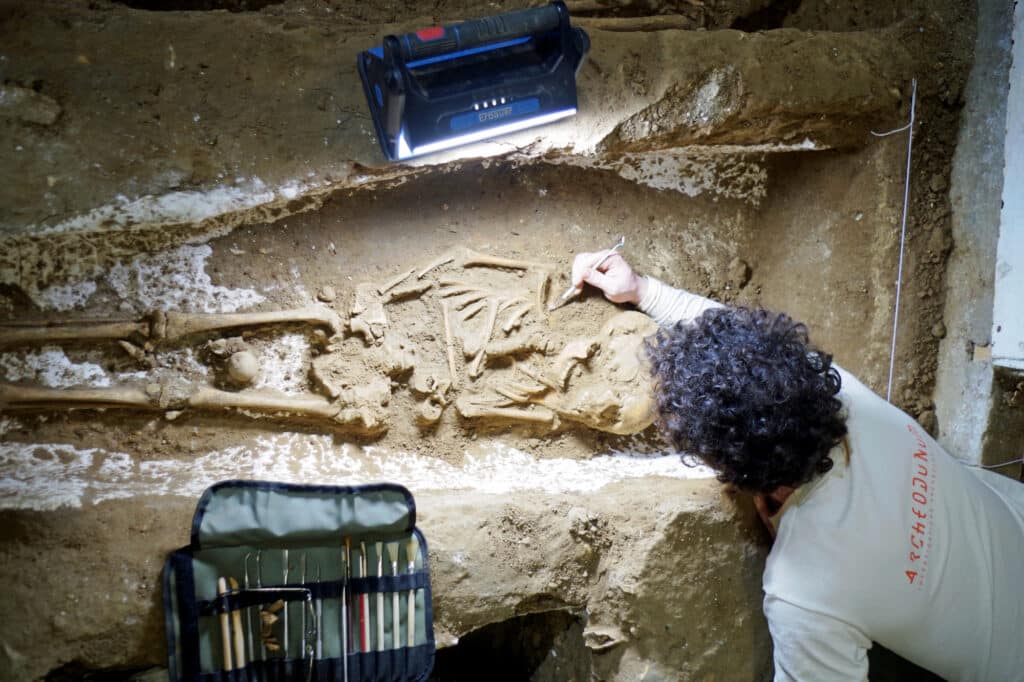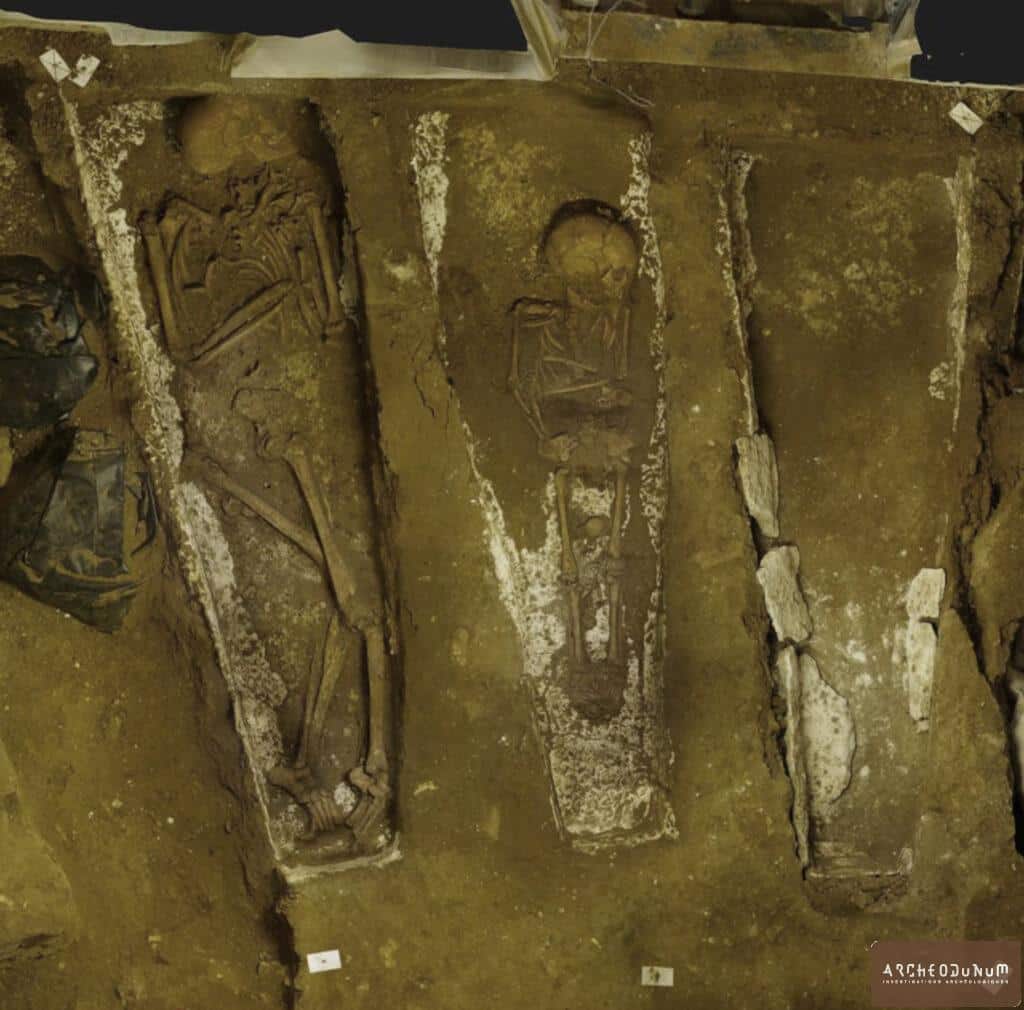French man discovers medieval skeletons and sarcophagi while renovating cellar
Finding in southern Paris may lead to better understanding of population that lived in the region during Antiquity and early Middle Ages, archaeologists say
Your support helps us to tell the story
From reproductive rights to climate change to Big Tech, The Independent is on the ground when the story is developing. Whether it's investigating the financials of Elon Musk's pro-Trump PAC or producing our latest documentary, 'The A Word', which shines a light on the American women fighting for reproductive rights, we know how important it is to parse out the facts from the messaging.
At such a critical moment in US history, we need reporters on the ground. Your donation allows us to keep sending journalists to speak to both sides of the story.
The Independent is trusted by Americans across the entire political spectrum. And unlike many other quality news outlets, we choose not to lock Americans out of our reporting and analysis with paywalls. We believe quality journalism should be available to everyone, paid for by those who can afford it.
Your support makes all the difference.A French man renovating his basement discovered dozens of medieval skeletons and 10 sarcophagi.
The remains unearthed in a southern suburb of Paris could lead to a better understanding of the population that lived in the region during the early Middle Ages and the Antiquity era before it, archaeologists said.
The existence of an early medieval cemetery in the area was already known and previous excavations had unearthed several plaster sarcophagi typical of later medieval periods.
Archaeologists descended on the man’s cellar and excavated an area of 52 square metres. They noted the burials were arranged in parallel rows, a practice that appeared to last the seven centuries the cemetery was used, between the 3rd and 10th centuries AD.
The latest dig suggested the cemetery was even older than previously thought, with the first burials dating to late Antiquity more than 1,500 years ago.

The funeral practice had evolved by the start of the Middle Ages around 500AD with bodies being buried in plaster sarcophagi.
The practice was particularly widespread in Île-de-France where the outer walls of tombs were sometimes decorated.
In the cellar, none of the sarcophagi were decorated, scientists from Archeodunum, an archaeological research centre assisting the Regional Archaeology Service, said.
“They all contain a single deceased while it is common to find several,” they said, adding that the sarcophagi were placed side by side in a fan-like arrangement.
The tombs didn’t have any special markings but one was topped with a block of cut and carved soft stone. Archaeologists said they weren’t sure of the block’s original shape.
“We can distinguish part of a rosette while the opposite side is a Latin cross and a cross inscribed in a circle,” they explained. “These motifs are regularly present on plaster sarcophagi and evoke the funerary domain, but also the ornaments which can appear on the facades of Christian places of worship.”

Archaeologists said they hoped to analyse the skeletons in the laboratory to determine the sex, age at death, and living conditions of the deceased individuals.
Further studies, scientists said, could help “better understand the population that lived here during Antiquity and the Middle Ages, but also to understand the evolution of funerary traditions during these periods”.

Join our commenting forum
Join thought-provoking conversations, follow other Independent readers and see their replies
Comments